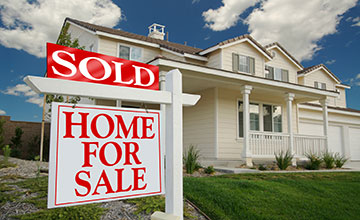
You may think you're ready to be a homebuyer, but have you done your homework? Do you know about credit score requirements? Are you familiar with the different mortgage options that could be available to you?
Mortgage rate: whether you are a 1st-time buyer or an experienced owner, buying a house requires a "preflight check".
Credit score: One old rule still applies: The higher your credit score, the lower your monthly payments. Below 660 or 680, you're either going to have to pay sizable fees or a higher down payment, on the other end, a score of 700 to 720 will get you a good deal, and 750 and above will garner the best rates on the market.
Debt-to-income ratio: For conventional loans, a safe formula is that home expenses should not exceed 28 percent of your gross monthly income, now that you know how much you can afford.
Don't forget loan fees: Another cash expense: closing costs. Whatever your loan source, you'll also need money to pay closing costs. For a $200,000 mortgage, closing costs run (depending on where you live) from $2,300 to $4,000. In a buyer's market, you can also negotiate to have the seller pay a portion of the closing costs.
If you're buying today for yourself and your family, you want a home that will make you happy for the next few years.

Why didn't your neighbor's home sell? The home is in a good location with a corner lot and a large landscaped yard, plus it's a newer home with all of the plush amenities a buyer could want like an open floor plan, spacious bedrooms, and high grade cabinets and appliances. So why wouldn't at least one buyer want to buy the place?
There is a one word answer: price. Homes that don't sell are more than likely overpriced. The market isn't rejecting the home so much as it's rejecting the price of the home, and in today's ultra competitive real estate market buyers will only purchase a home that offers them the best value for every dollar spent.
So if you don't want to follow in your neighbor's footsteps how can you pick the "right" price, one that provides you with top dollar but doesn't send potential buyers running into the arms of your competition?
Buyers discount value by DOM, Days On Market. The longer a home stays on the market, the greater they'll discount their offers. So, a realistic list price is how I make sure your property sells without languishing on the market.

Know your rights: Before starting your search, bone up on local and state laws on tenants' rights. The federal Department of Housing and Urban Development has plenty of helpful information on its site.
Know your credit history: Also check your credit history for errors. A history of late payments and low FICO score can scare off a landlord.
Look-and act-the part{ Despite anti-discrimination laws, landlords can legally reject applicants for many reasons, so you need to sell yourself as you would in applying for a job. Obviously, that means looking like a person who will take good care of the place, pay the rent on time and not bother the neighbors. But the landlord also likes to feel the tenant will be good natured and cooperative when problems arise - that you won't phone at 2 a.m. over a squeaky hinge, or make it difficult for a maintenance worker to get inside.
Get it in writing: Whether you rent from an individual or a company, the signed lease governs the relationship, so be wary of relying on oral promises that stray from terms of the contract. Make sure the lease is clear about each party's obligations. Are you responsible for mowing the lawn or taking the garbage to the curb? How many people can occupy the home? What does the lease say about resolving disputes? Is there a mediation process?
Check your lease: In many cases, the renter is required to pay the first and last month's rent plus a security deposit, often equal to a month's rent. The lease should state that you are not to be charged for normal wear and tear, and ideally, it will provide some details as to what this entails. If you hang pictures, for example, you shouldn't have to pay to spackle the holes and touch up the paint, but make sure the lease says so. Don't count on getting the whole deposit back. Some landlords do everything they can to hold on to this money, knowing many tenants won't bother with a legal fight.